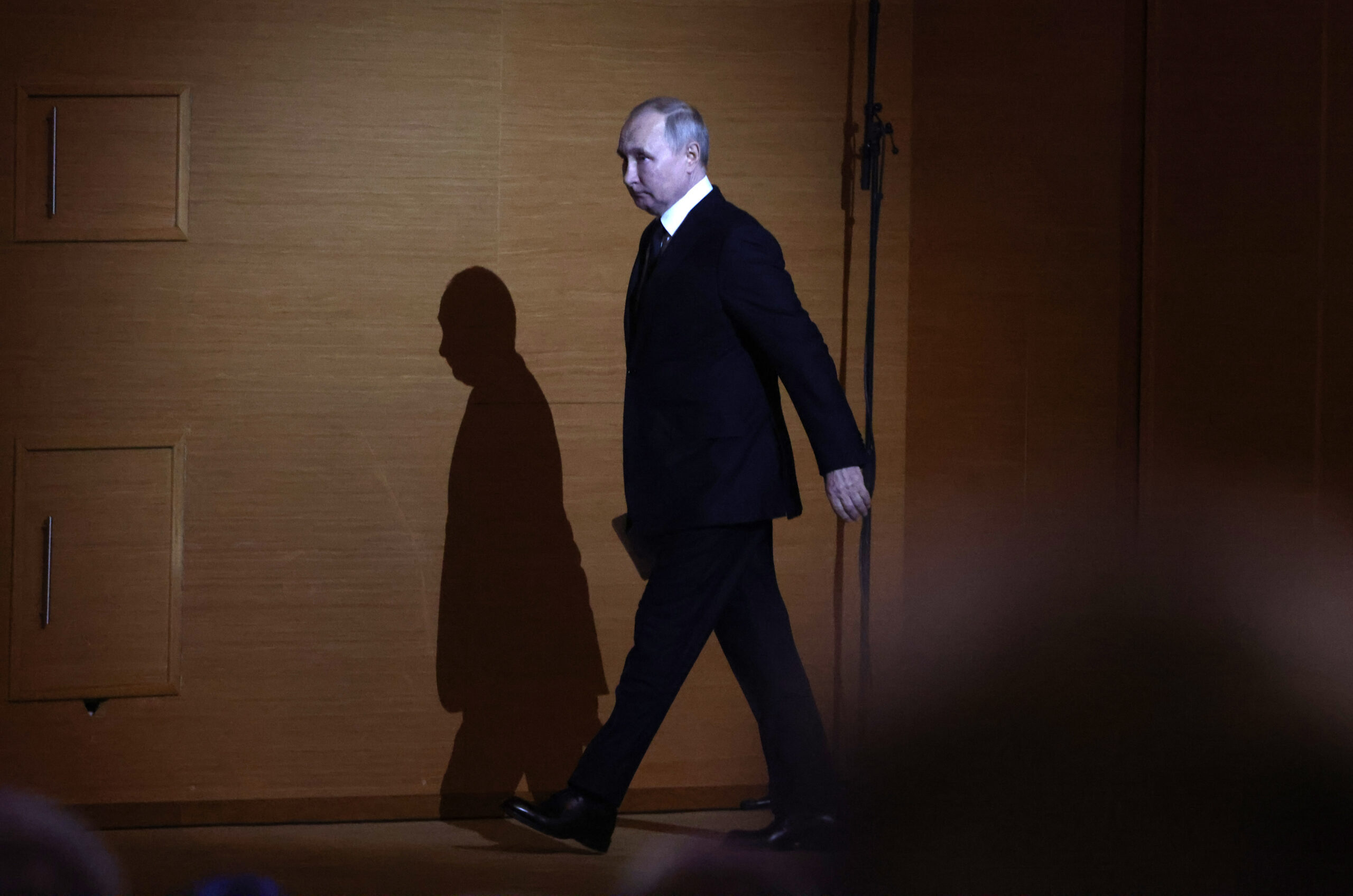
The Russian autocrat’s system of control has rested on pillars that are beginning to crumble.
June 2023
For the last 23 years, Vladimir Putin’s control of the Russian political system has relied on two pillars. The first is his control over the distribution of Russia’s massive inflow of natural-resource wealth. Some of this he has directed toward inefficient state enterprises to keep ordinary Russians employed, satisfied, and politically inert. Much has gone to buying the “loyalty” of Russia’s elites, especially those who control the state’s security tools. Putin has enjoyed the substantial remainder to fund a lavish lifestyle for himself.
Putin’s second pillar of control has been the literal blackmail of the very same elites whose loyalty he pays for: With dossiers of compromising material amassed over decades, Putin can threaten to revoke the wealth and freedom he grants elites should any of them try to challenge him. But this threat is credible only as long as Russia’s security apparatus is willing to follow Putin’s orders to destroy those who step out of line.
Mercenary warlord Yevgeny Prigozhin’s stunning insurrection reveals just how weakened these pillars of political control have become in Russia today, calling into question the fundamental stability and viability of Putin’s regime in the months ahead. In Prigozhin, Putin now faces a challenger whose loyalty he can no longer buy with lucrative government contracts. But unlike previous opponents such as media tycoon Boris Berezovsky, defector FSB agent Alexander Litvinenko, oil baron Mikhail Khodorkovsky, anticorruption crusader Alexei Navalny, double agent Sergei Skripal, and others who were unafraid to publicly challenge Putin’s power and paid the price, Prigozhin is backed by a battle-tested 50,000-man private army.
According to “selectorate theory,” a highly personalistic dictator such as Putin need only pay a relatively small amount to retain the loyalty of elites, while keeping significant financial reserves to outbid any challengers trying to entice elites to defect. Although we normally think of this “price” of loyalty in monetary terms, personal security and survival are also part of the exchange for elites’ continued loyalty to Putin.
As Prigozhin’s fighters approached Moscow, coming within 125 miles of the Russian capital before halting, those in Putin’s concentric rings of control must have begun asking themselves whether their chances of survival were better served by sticking with Putin and his failed war or by defecting to Prigozhin. After all, but for a handful of lifelong friends, few in Putin’s orbit are truly loyal to him in the emotional sense: Their “loyalty” depends on a combination of carrots and sticks.
The disastrous war in Ukraine, the slow strangulation of Western sanctions, and now the brazen challenge by Prigozhin have all shown that the old formula of payoffs and blackmail that Putin has used to rule Russia for more than two decades is failing to hold the regime together. Regardless of whether he survives the present challenge, there is no doubt that his once-unquestioned control is substantially diminished, a fact that cannot be ignored by his friends or his foes, the former of whom seem to be dwindling by the hour.![]()
Robert Person is associate professor of international relations at the U.S. Military Academy and a member of the Council on Foreign Relations. The views expressed here are his own and do not reflect the official position of the U.S. Army, Department of Defense, or the U.S. Government.
Copyright © 2023 National Endowment for Democracy
Image Credit: Getty Images
| FURTHER READING | ||
What Putin Fears MostRobert Person and Michael McFaul Forget his excuses. Russia’s autocrat doesn’t worry about NATO. What terrifies him is the prospect of a flourishing Ukrainian democracy. |
Why He May Soon Be Remembered as “Putin the Weak”The Russian autocrat wanted to go down in history on par with Russia’s greatest leaders. He is increasingly looking like one of its weakest. |
Why Putin Must Be DefeatedThe more determined democracies are to avoid war, the greater the risk that autocracies will wage it. |
